Should we snack throughout the day?
There is a huge component of individuality to nutrition, some people’s metabolism might blossom on five or so meals a day, whereas other’s might work more efficiently with only three. I would suggest experimenting and listen to your body’s hunger signals to figure out what is best for you. The key point is to not starve or restrict yourself of food, as this could lead to other problems.
Tips:
1. Don’t miss meals.
2. Listen to your body - if you are hungry or experience any low blood sugar symptoms (restlessness, irritability, shakiness, poor concentration, fatigue etc) then opt for a healthy snack to keep you going till your next meal. Long periods without eating for some people, may cause the body stress, releasing the stress hormone cortisol, which could promote fat storage.
3. Balance blood sugar levels - eat protein with every meal and snack to slow down the release of glucose into the blood.
Balancing blood sugar levels
Throughout the day blood sugar levels may fluctuate outside the preferred range. Swinging from being very high after a meal, stimulant or stress, to being very low, say if you skipped a meal. Insulin is a hormone responsible for maintaining blood sugar levels within the desired range, but during times of blood sugar imbalance can get out of control.
After a carbohydrate dense, sugar rich meal too much insulin maybe produced, which could result in blood sugar levels dropping too low leading to unpleasant symptoms. This is when you might find yourself reaching for sugar loaded options or stimulating caffeinated drinks. Here, healthy snacking could help.
What to snack on?
Even though the world has just about got over the crazy low fat craze of the 90s, many people are still resistant to snack on certain, what I would call ‘goodies’ like nuts and seeds because they still believe that they are ‘fattening’. It is a myth that if you eat foods high in fat, even healthy fats it will make you fat. Opt for snacks containing protein, fibre and beneficial fat to slow down the release of glucose into the bloodstream, helping to maintain blood sugar levels.
Snack ideas
· 1 portion of fruit (apple/pear/plum/handful of berries) with a handful of raw unsalted nuts (almonds/cashews/pecans/brazils/walnuts)
· Vegetable crudites (carrots, celery, cucumber, peppers) with hummus/guacamole/cottage cheese/nut butter
· 2 oatcakes with smoked salmon
· A boiled egg with a few cherry tomatoes
· A small pot of olives & a handful of unsalted pistachios
· ½ an avocado with a tbsp of cottage cheese
· Small pot of prawns with tabasco
There is a huge component of individuality to nutrition, some people’s metabolism might blossom on five or so meals a day, whereas other’s might work more efficiently with only three. I would suggest experimenting and listen to your body’s hunger signals to figure out what is best for you. The key point is to not starve or restrict yourself of food, as this could lead to other problems.
Tips:
1. Don’t miss meals.
2. Listen to your body - if you are hungry or experience any low blood sugar symptoms (restlessness, irritability, shakiness, poor concentration, fatigue etc) then opt for a healthy snack to keep you going till your next meal. Long periods without eating for some people, may cause the body stress, releasing the stress hormone cortisol, which could promote fat storage.
3. Balance blood sugar levels - eat protein with every meal and snack to slow down the release of glucose into the blood.
Balancing blood sugar levels
Throughout the day blood sugar levels may fluctuate outside the preferred range. Swinging from being very high after a meal, stimulant or stress, to being very low, say if you skipped a meal. Insulin is a hormone responsible for maintaining blood sugar levels within the desired range, but during times of blood sugar imbalance can get out of control.
After a carbohydrate dense, sugar rich meal too much insulin maybe produced, which could result in blood sugar levels dropping too low leading to unpleasant symptoms. This is when you might find yourself reaching for sugar loaded options or stimulating caffeinated drinks. Here, healthy snacking could help.
What to snack on?
Even though the world has just about got over the crazy low fat craze of the 90s, many people are still resistant to snack on certain, what I would call ‘goodies’ like nuts and seeds because they still believe that they are ‘fattening’. It is a myth that if you eat foods high in fat, even healthy fats it will make you fat. Opt for snacks containing protein, fibre and beneficial fat to slow down the release of glucose into the bloodstream, helping to maintain blood sugar levels.
Snack ideas
· 1 portion of fruit (apple/pear/plum/handful of berries) with a handful of raw unsalted nuts (almonds/cashews/pecans/brazils/walnuts)
· Vegetable crudites (carrots, celery, cucumber, peppers) with hummus/guacamole/cottage cheese/nut butter
· 2 oatcakes with smoked salmon
· A boiled egg with a few cherry tomatoes
· A small pot of olives & a handful of unsalted pistachios
· ½ an avocado with a tbsp of cottage cheese
· Small pot of prawns with tabasco

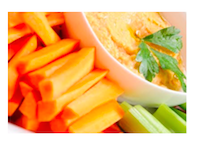
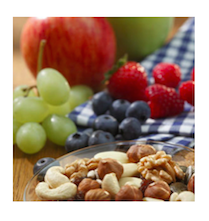
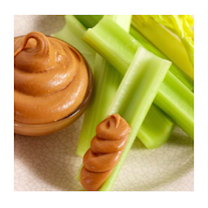
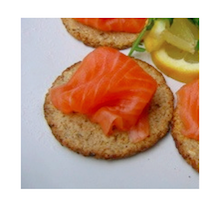
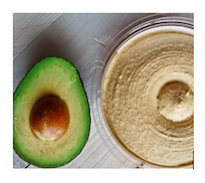
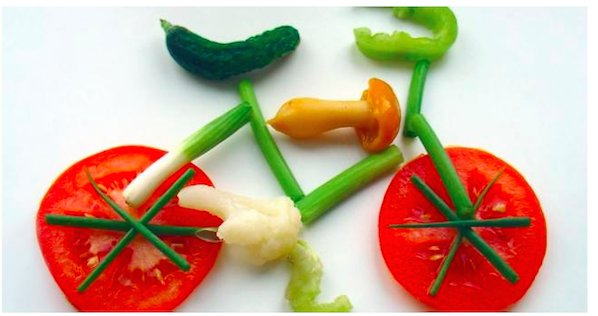
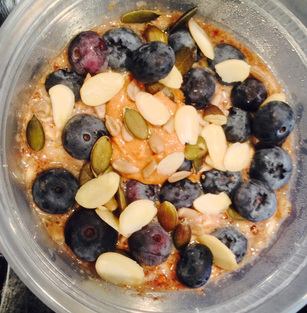
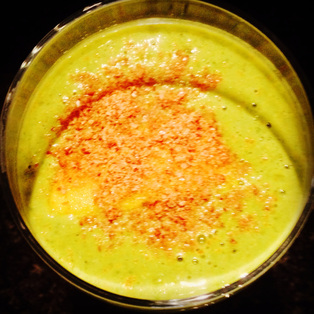
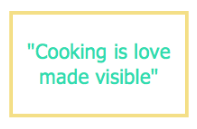
 RSS Feed
RSS Feed
